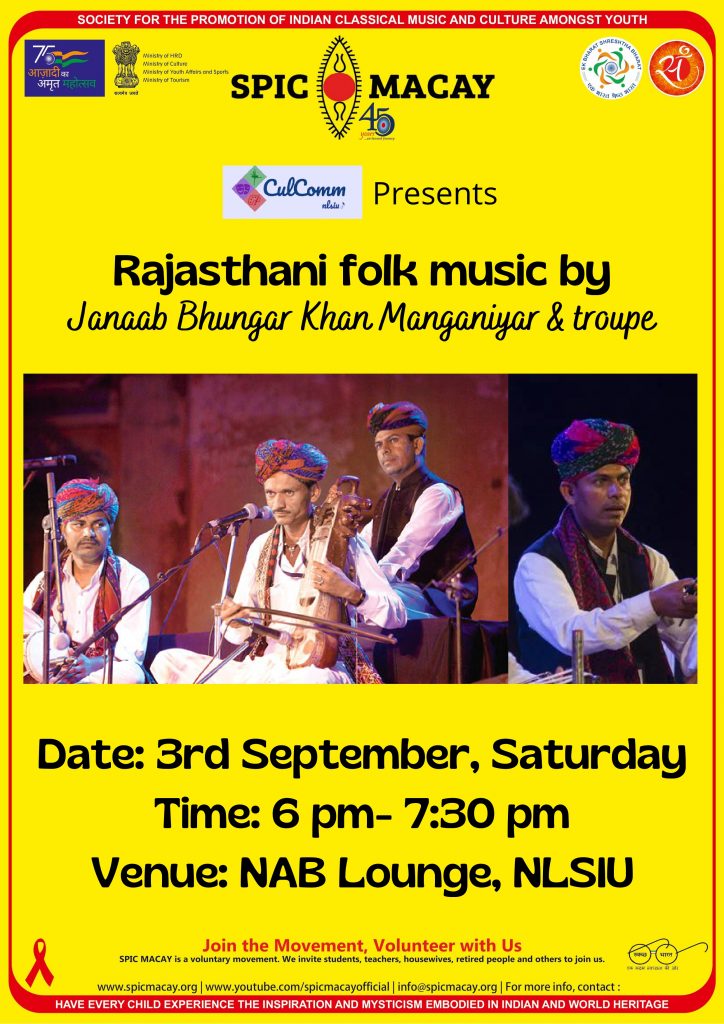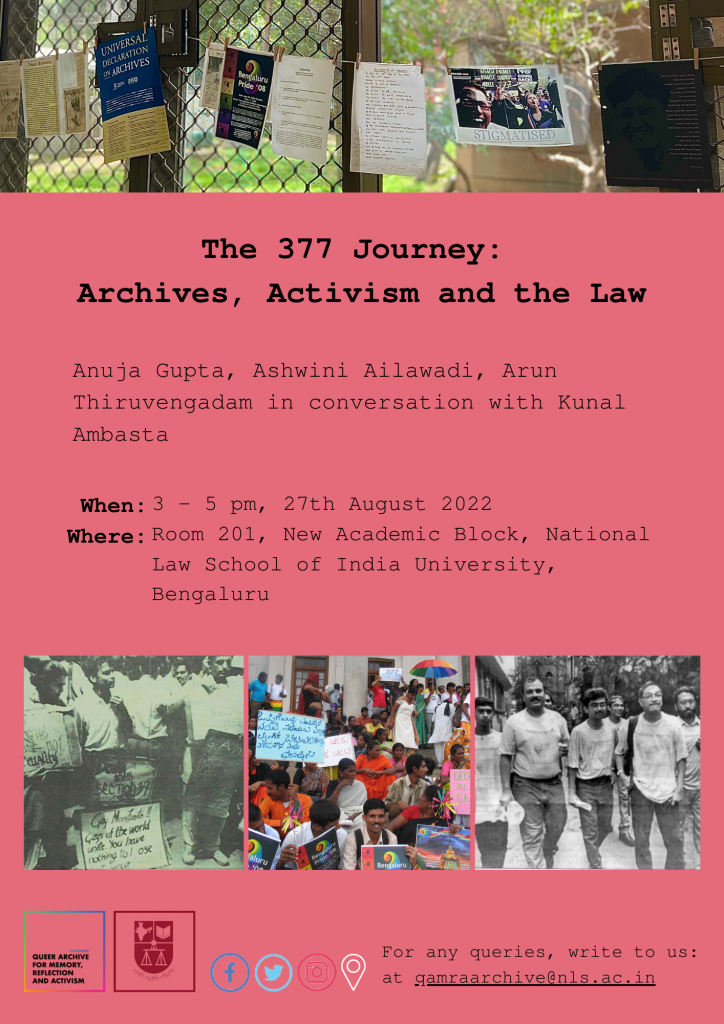 After a gap of two years, we are pleased to announce the return of the collaboration between the Cultural and Fine Arts Committee and the SPIC MACAY Foundation! This year, we are proud to present a Rajasthani folk music performance by Janaab Bhungar Khan Manganiyar and troupe. The performance will be held on 3rd September 2022 (Saturday) in the New Academic Block (NAB) Lounge from 6-7:30 PM.
After a gap of two years, we are pleased to announce the return of the collaboration between the Cultural and Fine Arts Committee and the SPIC MACAY Foundation! This year, we are proud to present a Rajasthani folk music performance by Janaab Bhungar Khan Manganiyar and troupe. The performance will be held on 3rd September 2022 (Saturday) in the New Academic Block (NAB) Lounge from 6-7:30 PM.
About the SPIC MACAY Foundation
The Society for the Promotion of Indian Classical Music and Culture Amongst Youth (SPIC MACAY) is a 45-year-old non-profit, volunteer-run global youth movement which aims to provide a platform for eminent artists and professionals to showcase their skills in the fields of music, dance, theatre, yoga, poetry, crafts and paintings among others. As of present, the Foundation has collaborated with over 1500 educational institutions, both in India and abroad, to further this purpose.
About the artistes – Janaab Bhungar Khan Manganiyar and Troupe
Janaab Bhungar Khan Manganiyar is a young folk artist who has been the recipient of several prestigious awards such as the Ustad Bismillah Khan Yuva Puraskar from the Central Sangeet Natak Akademi, in recognition of his contributions to Rajasthani folk music. He is also skilled in playing the Khartal. He will be performing on campus along with his troupe, which consists of: Nehru Khan (vocals), Sadik Khan (harmonium and vocals), Bhetu Khan (vocals), Bhugde Khan (khamiacha), Sawai Khan (dholak). They will be performing traditional and popular Rajasthani folk songs, and are renowned for their powerful voices and moving performances.
To find out more about the troupe and have a look at their performances, head over to their webpage linked here.
We hope to see you all turn up in large numbers for what we expect to be a truly memorable evening!

 With the term about half-way through, we thought it will be fun for the NLS community to gather for an informal open mic/ poetry reading in the New Academic Block. As a new space on campus that’s begun to bustle with classes, this may be a good way to make the space our own, and promote a cultural and social life.
With the term about half-way through, we thought it will be fun for the NLS community to gather for an informal open mic/ poetry reading in the New Academic Block. As a new space on campus that’s begun to bustle with classes, this may be a good way to make the space our own, and promote a cultural and social life. Abstract:
Abstract: